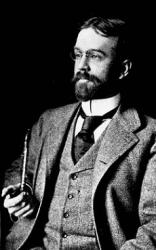Planning worship?
Check out our sister site, ZeteoSearch.org,
for 20+ additional resources related to your search.
- |
User Links
Person Results
John H. Gower
1855 - 1922 Composer of "RECESSIONAL" in The Beacon Song and Service book
John H. Gower
G. F. Blanchard
1868 - 1926 Person Name: George F. Blanchard Composer of "LEST WE FORGET" in The Hymnal George Frederic Blanchard was born about May 1868 in the Hoxne district of Norfolk, England.
He died on May 9, 1926 in Weston-super-Mare, Somerset, England.
G. F. Blanchard
Richard Wagner
1813 - 1883 Person Name: Richard Wagner, 1813-1883 Composer of "RECESSIONAL" in The Riverdale Hymn Book
Richard Wagner
Frederic Field Bullard

1864 - 1904 Person Name: Frederic F. Bullard Composer of "RECESSIONAL" in The Pilgrim Hymnal
Frederic Field Bullard
Charles H. Morse
b. 1853 Person Name: Charles H. Morse, 1853- Composer of "KIPLING" in Songs for the Chapel
Charles H. Morse
Zerubbabel Wyvill
1763 - 1837 Person Name: Z. Wyvill (1762-1837) Composer of "WYVILL" in Hymns of Worship and Service
Zerubbabel Wyvill
Arthur Sullivan

1842 - 1900 Person Name: Sir Arthur S. Sullivan Composer of "VALETE" in The Praise Hymnary Arthur Seymour Sullivan (b Lambeth, London. England. 1842; d. Westminster, London, 1900) was born of an Italian mother and an Irish father who was an army bandmaster and a professor of music. Sullivan entered the Chapel Royal as a chorister in 1854. He was elected as the first Mendelssohn scholar in 1856, when he began his studies at the Royal Academy of Music in London. He also studied at the Leipzig Conservatory (1858-1861) and in 1866 was appointed professor of composition at the Royal Academy of Music. Early in his career Sullivan composed oratorios and music for some Shakespeare plays. However, he is best known for writing the music for lyrics by William S. Gilbert, which produced popular operettas such as H.M.S. Pinafore (1878), The Pirates of Penzance (1879), The Mikado (1884), and Yeomen of the Guard (1888). These operettas satirized the court and everyday life in Victorian times. Although he composed some anthems, in the area of church music Sullivan is best remembered for his hymn tunes, written between 1867 and 1874 and published in The Hymnary (1872) and Church Hymns (1874), both of which he edited. He contributed hymns to A Hymnal Chiefly from The Book of Praise (1867) and to the Presbyterian collection Psalms and Hymns for Divine Worship (1867). A complete collection of his hymns and arrangements was published posthumously as Hymn Tunes by Arthur Sullivan (1902). Sullivan steadfastly refused to grant permission to those who wished to make hymn tunes from the popular melodies in his operettas.
Bert Polman
Arthur Sullivan
T. Tertius Noble

1867 - 1953 Composer of "RECESSIONAL" in The Hymnal Thomas Tertius Nobel (1867-1953) was born in Bath, England, educated at the Royal College of Music, and was a noted composer and organist. He served as a church organist in Cambridge and Colchester. He moved to Ely Cathedral in 1892 as organist and choirmaster, and in 1898 to York Minster, where he founded the York Symphony Orchestra, directed the York Musical Society, conducted the York Pageant, and revived the York Musical Festival after a lapse of 75 years. He became an honorary fellow of the Royal College of Organists in 1905. In 1913, he moved to New York City, where he was organist at St. Thomas’ Episcopal Church, and established its choir school and a boys’ choir. In addition to composing, he wrote about music education, and helped edit the 1916 Protestant Episcopal hymnal, and served on the music committee that prepared its 1940 successor. He wrote a wide range of music, but only his services, anthems and hymn tunes are still performed regularly. Died: May 4, 1953, Rockport, Massachusetts.
http://www.hymntime.com/tch/
T. Tertius Noble


 My Starred Hymns
My Starred Hymns


